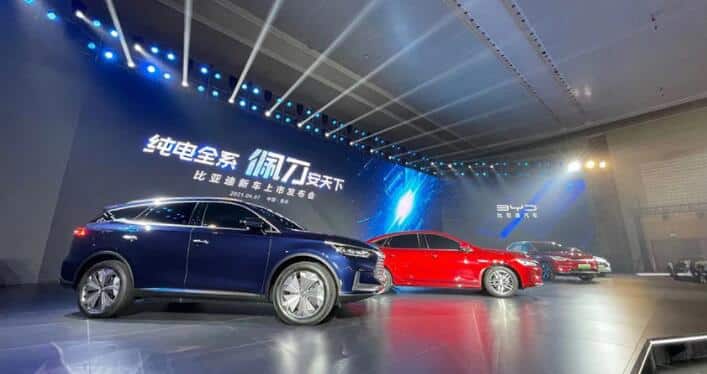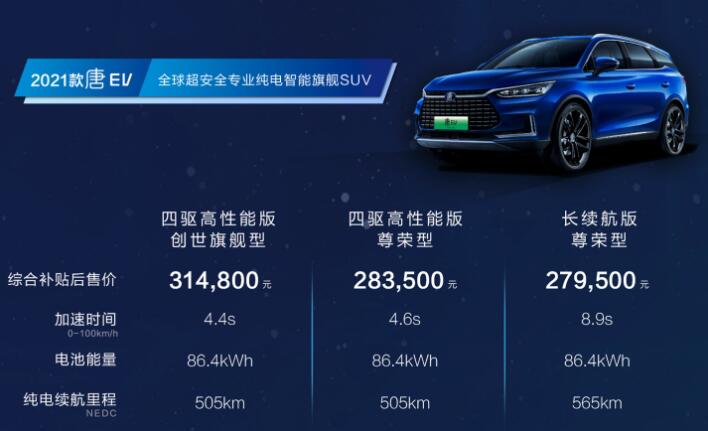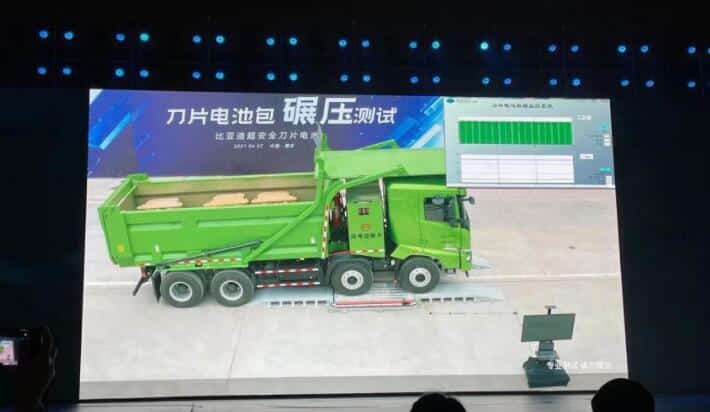
BYD announced on Wednesday four electric vehicles with blade batteries, the 2021 Tang EV, Qin PLUS EV, Song PLUS EV, and 2021 BYD e2, priced from RMB 99,800 ($15,244).
The 2021 Tang EV has an NEDC range of 565 km, can be charged from 30 percent to 80 percent in 30 minutes, and is priced at RMB 279,500-314,800.
The Qin PLUS EV has an NEDC range of 600 km, a hover screen, and DiLink 3.0, and is priced at RMB 129,800-166,800.
The Song PLUS EV has an NEDC range of 505 km, also with a hover screen and DiLink 3.0, and is priced at RMB 169,800-186,800.
The 2021 BYD e2 has an NEDC range of 401 km and supports cell phone NFC unlocking, intelligent remote control driving, and CCS intelligent fixed speed range. It is priced at RMB 99,800-115,800.
Wang Chuanfu, BYD's founder and chairman of the board, said the company's electric vehicle models will all use blade batteries, and all batteries will be tested with pinpricks.
Wang said the blade battery will not spontaneously combust and can still be used normally after being crushed by a 46-ton truck.
Production capacity for the blade battery is now rising rapidly and has been supplied to Chinese luxury car brand Hongqi, and will be installed in many mainstream brands of new energy vehicles, Wang said.
In addition, BYD is barely affected by this global automotive chip shortage, Wang said.
In the past few years, China's electric vehicle models will generally choose ternary lithium batteries which have a higher energy density, and lithium iron phosphate batteries are more often found in the commercial vehicle sector.
In the past two years, the safety of ternary lithium batteries has been questioned as the number of electric vehicle fires has increased.
Last March, BYD released a new lithium iron phosphate battery, Blade Battery, which can pass all safety tests, even pinprick tests.
BYD makes the energy density of the blade battery catch up with the mainstream ternary lithium battery through its unique packaging mode.
Compared with ternary lithium batteries, lithium iron phosphate batteries have lower cost and better safety. Driven by BYD's blade battery, there are now several car companies that have chosen lithium iron phosphate batteries.

